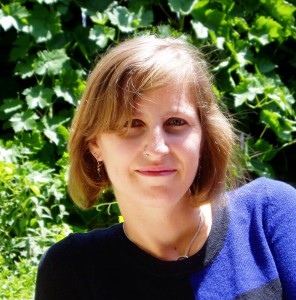Today, we are lucky enough to have literary agent Patricia Nelson of Marsal Lyon Literary Agency on the blog. Patricia Nelson is a literary agent with Marsal Lyon Literary Agency. She represents adult and YA fiction, and is actively building her list. For more about what she’s looking for, check out her agency page or her manuscript wish list, or follow her on twitter @patricianels . Thank you, Ms. Nelson, for being here with us!
AN: Many of my readers are aspiring authors and are actively looking for their first agent. Can you tell them a little bit about what the author/agent relationship is like? What can they expect after they sign with an agent?
PN: The agent/author relationship is a unique, multi-faceted one. Your agent is your business partner, advisor, cheerleader, and champion. They’re in your corner and have the connections and knowledge to offer guidance, not just for one book but for building your career as an author long-term. This means it’s a relationship built on mutual trust from the start. Your agent will expect you to be professional and dedicated to your craft; you should be able to expect that your agent will be engaged with your work and available via email and/or phone. Throughout the process, they should keep you updated about next steps, and you should feel comfortable approaching them with questions.
AN: What are you looking for right now in fiction submissions and not getting? Are there any subjects or genres that are near and dear to your heart? And on the flip side, what are you getting too much of?
PN: I would love to see more women’s fiction, adult romance (both contemporary and historical), magical realism (both YA and adult), and YA contemporary with a unique hook and beautiful, literary writing, Also, send me more diverse books, please! On the flip side, I tend to get a whole lot of dystopian, paranormal, and urban fantasy queries, especially for YA – these genres are currently quite tough sells, and so I’m not tending to request many of these kinds of stories right now.
AN: There’s a lot of talk about “high concept” fiction lately. Can you define it for us? Do you feel that it’s become more and more important for books to be high concept?
PN: “High concept” means that a book can be described effectively and compellingly in just a few words – you know exactly what you’re signing up for based on concept alone. The first example of this that comes to my mind is the book GREAT by Sara Benincasa, which I was seeing described pre-release last year as a “YA lesbian Great Gatsby retelling.” With five words, I knew exactly what that book was going to be, how the concept was unique, and that it was something that I wanted to read. Having a high concept is appealing because it helps a book stand out in a crowded market and reach readers, but isn’t the be all and end all if the writing is amazing. I wouldn’t call ELEANOR & PARK high concept, but it’s wonderful and became a bestseller—people recommended it to others because it’s a fantastic novel, even though it’s a more difficult story to sum up in a single sentence.
AN: As an agent, you see a lot of manuscripts from beginning writers. If there was one area you could tell a writer to focus on, to work toward improvement in, what would it be?
PN: I would advise all beginning authors to read at least one craft book about plot and pacing when starting out – I frequently recommend Blake Snyder’s SAVE THE CAT. There’s so much about writing that’s somewhat intangible – for example, I can’t coach an author into finding a compelling and unique voice – but there are certain things that readers consistently find satisfying in the way that plots unfold. Learning what makes a plot work makes a huge difference in taking your writing from “promising” to “can’t put it down.”
AN: Best piece(s) of advice you can give a writer we haven’t talked about yet?
PN: Consume all the culture you can – that’s where ideas come from. Read recent fiction in your genre and in other genres, read classics and bestsellers, watch studio movies and indie movies, listen to podcasts, read nonfiction and journalism and cultural criticism. I get a lot of submissions that are good but just don’t feel quite fresh or different enough, and sometimes I think that it’s because the writer is only reading within their genre. The more kinds of things you take in, the more you’ll be able to pull from in crafting a story that feels original and exciting.
AN: Are you open to submissions? If so, how should a writer go about submitting?
PN: Yes! Send me a query letter at patricia@marsallyonliteraryagency.com. I do my best to reply to queries within four weeks, so if you don’t hear from me in that time frame, yours might have gone astray and you should try again.
